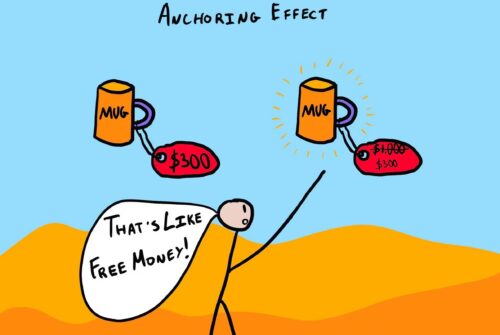“Houses are built to live in and not to look on.”
–Sir Francis Bacon

Have you ever looked for houses online?
Have you used realtor.com to look for houses?
Did you realize that you may wind up paying too high of a price for a house if you use realtor.com?
Want to find out more?
Keep reading.
It’s no secret that I’m a fan of investment real estate. It’s a part of our portfolio and we plan on using it to fund some, if not all, of our income needs in early retirement, particularly until we can get to the point where we can start withdrawing from our retirement accounts. While I have a great property manager cum Realtor who bird dogs for me and is often way ahead of me when it comes to finding properties, I occasionally like to troll the Internet to see what sort of deals I can find.
One site which I absolutely, positively despise is realtor.com. Sure, in my previous company, one of the areas I focused on was the user experience in websites, so maybe I’m a little touchy on the subject, but I use realtor.com as my site of last resort when I’m looking for homes. While I could go on and on about their horrible site design, this is a financial planning website, not an Internet design website, so I won’t.
I will, though, point out one brilliant marketing strategy that they use which can get you into some real trouble. OK. I’m not sure it’s a brilliant marketing strategy in that it would be giving them credit for having thought about this concept before putting it on their website, and, from the horrendous user experience on the rest of the website, I’m not willing to give them that much credit. But, it has an invidious effect from the user’s point of view. Realtor’s gain, your loss.
What is it that they do which is so bad for a potential house buyer?
They use the anchoring effect to your disadvantage.
Before we look into how realtor.com is putting you at a disadvantage, we need to look at what the anchoring effect is.
Monkey Brain usually has no idea how to do math. The only number he knows is “NOT ENOUGH” as in “MONKEY BRAIN HAS NOT ENOUGH BANANAS.” Therefore, whenever he faces a decision regarding numbers and prices, he is easily swayed, particularly when he doesn’t know much about the situation.
How easily is Monkey Brain swayed? Carnegie Mellon’s George Lowenstein and Duke’s Dan Ariely performed an experiment where they had all of the students in the class write down the last two digits of their Social Security numbers. Next, they reminded the students that the last two numbers are random and, for all intents and purposes, meaningless. Finally, they asked students to bid on a bottle of wine.
Who bid the most?
The students who had the highest last two digits in their Social Security numbers. The love for wine or knowledge of the quality of the bottle of wine weren’t influential, but the random number that the students had just thought of was.
Furthermore, when subsequently asked to bid on a nicer bottle of wine, the “high Social Security number” group of students again had the highest bids.
The random number had not only served to create a mental anchor in these students’ minds, but it served to anchor subsequent bids.
What happens is that the first time we determine a value for something, if we don’t know anything else about the object, we can become anchored to the first number we see. Once we’re anchored, we then use that valuation to create relative references for subsequent estimations. If we see a high number at first, then we continue to think of higher valuations later.
How is realtor.com anchoring you?

Let’s take a look at what happens when you conduct a search for Fort Worth, Texas homes with prices between $0 and $80,000.
There are two factors which serve to anchor you to high prices at work here:
- The Sponsored Listings come first. Take a look at the Sponsored Listings. Three of the listings aren’t even in Fort Worth. Three of them are also ABOVE the price that was specified in the search, and the one which isn’t is barely below the top range.
- They sort from highest price to lowest price. This makes sense from a Realtor’s point of view. The Realtor is going to make, at most, 6% off of the sale of a home, and, more likely, 3%. They don’t want you looking at the cheap stuff. It’s not in their financial interest. No Realtor, whether a buy-side or a sell-side agent, has an incentive for you to buy a cheaper house. After all, unless you’re changing houses in the same geographic area every couple of years, your relationship with a Realtor is transactional – you’re one and done. In transactional negotiations, each party has a high incentive to extract as much value out of the deal as possible, since the parties are never going to work with each other again.
Research from Cambridge supports the idea that you can become arbitrarily anchored to a number when looking at house prices. It’s not just wine. It’s one of the biggest purchases of your life, and you can become randomly anchored to a number. Whether intentional or not, realtor.com is trying to change your anchors.
Is there an easy way around this? Not really. We become anchored to arbitrary numbers in valuations when we don’t know much about objective valuations. Therefore, the biggest deterrent to arbitrary anchoring is knowledge. The more you know about a market and what prices home have sold for, the better armed you’re going to be when you’re looking.
But, we’ve created a chicken and an egg scenario: how can you become armed and knowledgeable about a market without looking at the numbers? You can’t set realtor.com to display results in ascending price order, and you certainly can’t get it to turn off featured properties.
I suggest that you make a Realtor work for you. Really, all they’re going to do is drive you around for a few hours looking at properties and then collect a fat check, making much more per hour than you probably do for simple, repetitive, and relatively brainless work. So, make this person earn the commission (they’re a cabal, anyway). Good Realtors will understand what you’re doing and will want to help you be happy with your decision. Ask for a list of sold homes in whatever geography you’re looking in (zip codes, neighborhoods, etc.) for a reasonable price range. You want a bottom and a top because you want to establish relative valuations. A 1,500 sf home in the ghetto is going to have a lower price point than one in a gated community. Ask for it in an Excel spreadsheet.
Then, once you get that data, run regressions on the numbers. Determine how much the market is willing to pay for different features of homes and markets.
If that last paragraph made no sense, contact me. I can help!
Once you have your data and an established model of how much features are worth in the model, you will have a new anchor. You can then look at homes on the market, compare them to what they should be worth, and figure out if you’re getting a good deal or not. You won’t be anchored by the high numbers that realtor.com is trying to bump you towards.
Better yet, once you have your model, use Zillow!
Have you ever experienced “it’s not too far out of our price range” when purchasing a house? Tell us your experiences in the comments below!
Around a year ago, I wrote about shopping just because something is on sale causes us to lie to ourselves. If you haven’t read it, go check it out!
Author Profile
- John Davis is a nationally recognized expert on credit reporting, credit scoring, and identity theft. He has written four books about his expertise in the field and has been featured extensively in numerous media outlets such as The Wall Street Journal, The Washington Post, CNN, CBS News, CNBC, Fox Business, and many more. With over 20 years of experience helping consumers understand their credit and identity protection rights, John is passionate about empowering people to take control of their finances. He works with financial institutions to develop consumer-friendly policies that promote financial literacy and responsible borrowing habits.
Latest entries
 Low Income GrantsSeptember 25, 2023How to Get a Free Government Phone: A Step-by-Step Guide
Low Income GrantsSeptember 25, 2023How to Get a Free Government Phone: A Step-by-Step Guide Low Income GrantsSeptember 25, 2023Dental Charities That Help With Dental Costs
Low Income GrantsSeptember 25, 2023Dental Charities That Help With Dental Costs Low Income GrantsSeptember 25, 2023Low-Cost Hearing Aids for Seniors: A Comprehensive Guide
Low Income GrantsSeptember 25, 2023Low-Cost Hearing Aids for Seniors: A Comprehensive Guide Low Income GrantsSeptember 25, 2023Second Chance Apartments that Accept Evictions: A Comprehensive Guide
Low Income GrantsSeptember 25, 2023Second Chance Apartments that Accept Evictions: A Comprehensive Guide

